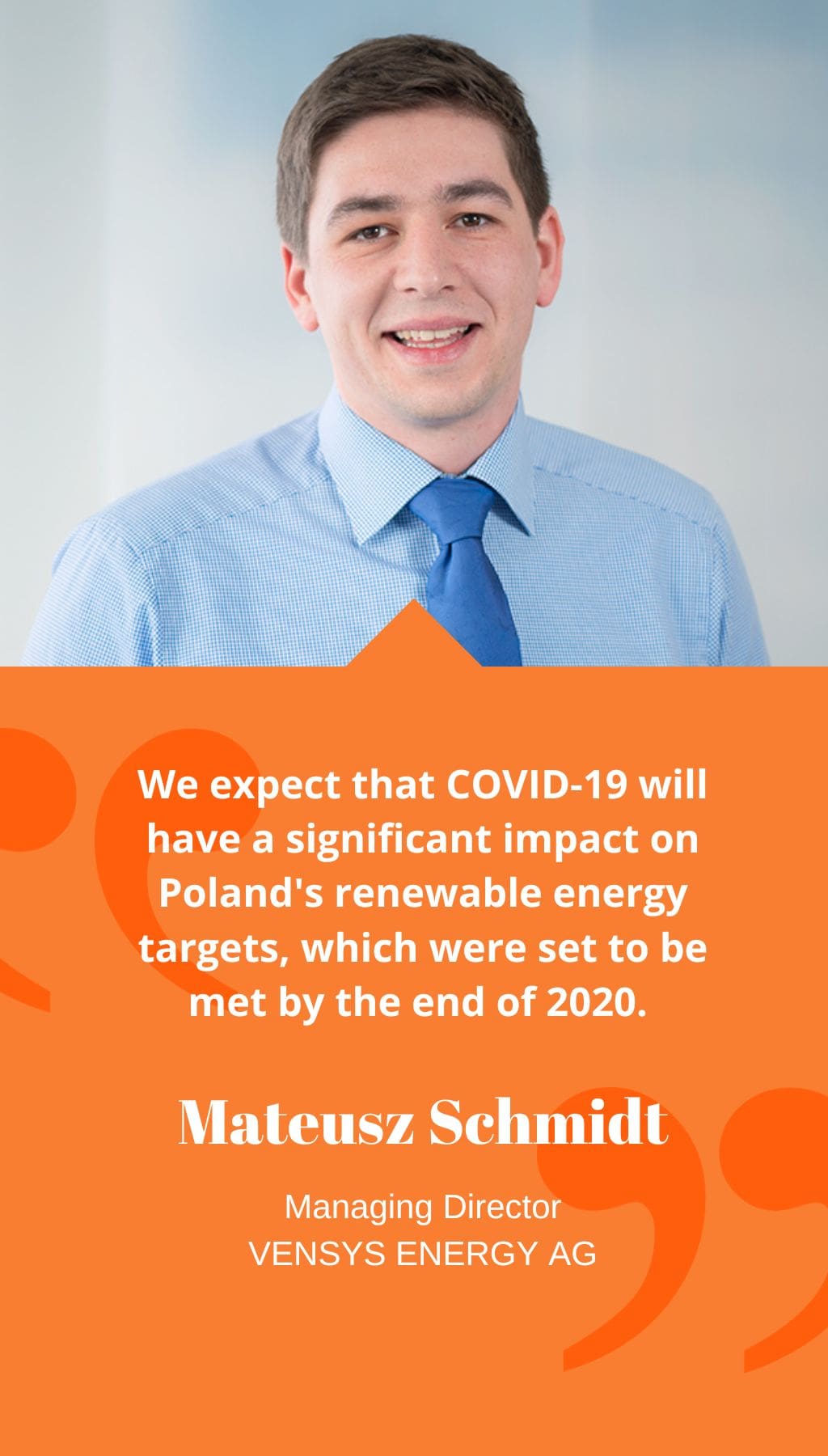
- Poland | 14 May 2020

Can you tell us about Vensys’ decision to set up operations in Poland in 2014 and the current scope of the company’s activities there?
Vensys has two main facilities in Germany, one in Neunkirchen which serves as the company headquarters, and the other in Diepholz, producing electronic components for our turbines. In 2016, we also launched a subsidiary called Eblades in Granada, Spain, for rotor blade production. Our branch in Poland was established in 2015 due to the growing interest in our turbines in the Polish market. Our main focus is on the domestic market, but we also serve Belarus and provide services to existing wind farms in Eastern Germany.
As the majority of your work is geared towards small and medium projects, how do you assess the opportunity pool for these types of projects in Poland?
Our small projects typically involve two to three turbines, and medium projects average around 10 turbines, which aligns with Vensys’ capabilities. While there is growing demand for small and medium projects in Poland, larger-scale projects still dominate the market. Our current strategy is to reach an annual capacity of 130-150 MW. In addition to project sales, our revenue stream has been complemented through the sale of licenses, such as our partnership with Goldwind in China. Goldwind, a top global turbine producer, has manufactured turbines based on our original Vensys design, supplying over 8 GW in 2019. We are excited about further fostering this relationship to diversify our offerings in the European market.
Starting operations in Poland just as the wind business environment took a downturn, how has Vensys been handling the challenges created by the Polish government’s policies?
Indeed, we started operations in Poland in 2015, which means we have not experienced a truly favorable year in the local market. The first few years were challenging, as we had to navigate contract negotiations and the need to survive as a business. However, we were fortunate to have business coming from Belarus, which has been ongoing and has helped us weather the storm. Additionally, reliable services provided by Polish service teams to existing turbines have been instrumental in our success. Auctions have also been helpful, and we are currently working on several auction projects ourselves. However, this brings us to an ongoing challenge.
Can you discuss the potential impact of COVID-19 on your business operations? Have you observed any changes already taking place?
As we continue to navigate the effects of the pandemic, we anticipate the need to adjust the timelines for our upcoming projects that have been awarded in auctions and are set to enter the support system. This may include extending grid connection agreements and other administrative decisions necessary to ensure the successful completion of our investments. Moreover, we expect that COVID-19 will have a significant impact on Poland’s renewable energy targets, which were set to be met by the end of 2020. The current challenge lies in executing the complex transactions related to the projects awarded in auctions, particularly in terms of lead time for wind turbines and project finance. However, we remain optimistic and are working diligently to adapt to these changes and ensure the long-term success of our business.














